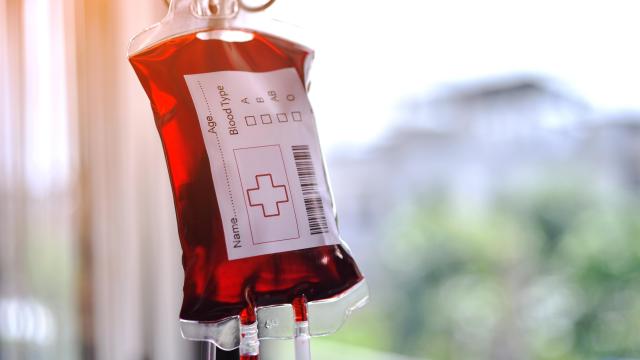A novel medication for hemophilia B has just been approved by the U.S. Food and Drug Administration. The treatment is a form of gene therapy, intended to replace a dysfunctional gene that leaves people unable to control their bleeding. It’s expected to cost $US3.5 ($5) million per patient.
Hemophilia is a genetic condition that’s usually inherited from one’s parents and is thought to affect about one in every 40,000 people. There are two major types of the disorder, A and B, with B representing about 15% of cases. Both types are the result of mutations that cause people to produce less of a specific clotting factor, which are proteins vital for forming blood clots; hemophilia B is characterised by a deficiency of Factor IX. Because the genes involved in hemophilia are found on the X chromosome, most people who experience symptoms are men, while most affected women can carry a mutated gene without illness. Up to 25% of women can experience mild symptoms, though, and in some rare cases, they experience severe illness. Sufferers with moderate to severe hemophilia can develop life-threatening episodes of uncontrolled bleeding, even from otherwise mundane injuries or simple medical procedures.
To prevent or manage bleeding episodes, patients will undergo regular infusions of their missing clotting factor. Though effective at stopping spontaneous bleeding, these infusions are not a cure and in the most severe cases, people may need to get them every two to three days — a costly and time-consuming measure. For years now, scientists have been hopeful that gene therapy could provide a longer-lasting or even permanent treatment for hemophilia B, and this drug’s approval appears to be the first step in getting there.
The treatment is known as etranacogene dezaparvovec. It was developed by the biotech company CSL Behring and will be sold under the brand name Hemgenix. On Wednesday, the FDA announced the approval of Hemgenix for the treatment of hemophilia B in people with a current or past history of severe bleeding episodes or who are taking Factor IX prophylaxis therapy.
“Gene therapy for hemophilia has been on the horizon for more than two decades. Despite advancements in the treatment of hemophilia, the prevention and treatment of bleeding episodes can adversely impact individuals’ quality of life,” said Peter Marks, director of the FDA’s Centre for Biologics Evaluation and Research in a statement. “Today’s approval provides a new treatment option for patients with Hemophilia B and represents important progress in the development of innovative therapies for those experiencing a high burden of disease associated with this form of hemophilia.”
The single-dose therapy is given through IV infusion and uses a neutered adenovirus to deliver a functional copy of the Factor IX gene into the body’s cells in the liver, in theory allowing them to produce more of the clotting factor. In two small trials of patients with moderate to severe hemophilia B, the therapy seemed to just do that, raising people’s measured levels of Factor IX. It also appeared to lower the rate of bleeding problems by 54% in one trial, and it reduced the need for regular infusions of clotting factors. The most common adverse effects linked to the treatment included headache, flu-like symptoms, and a rise in certain liver enzymes.
As important as this advance is, it won’t come cheap. Soon after approval, CSL Behring announced that Hemgenix’s initial list price will be $US3.5 ($5) million, the highest cost yet for a single-dose treatment in medicine. The company argues that the drug will likely still be less costly over the long run than the current standard of care since it should reduce the frequency of expensive transfusions; they also say that the drug’s effectiveness is expected to last for several years at least.
Though this is the first treatment of its kind for hemophilia to be approved in the U.S., regulators in the European Union approved a new gene therapy for severe hemophilia A earlier this year. That drug, BioMarin’s Roctavian, is still being reviewed for approval by the FDA, and it’s likely similar treatments for hemophilia and other genetically-related conditions will be coming down the pipeline soon enough as well.
